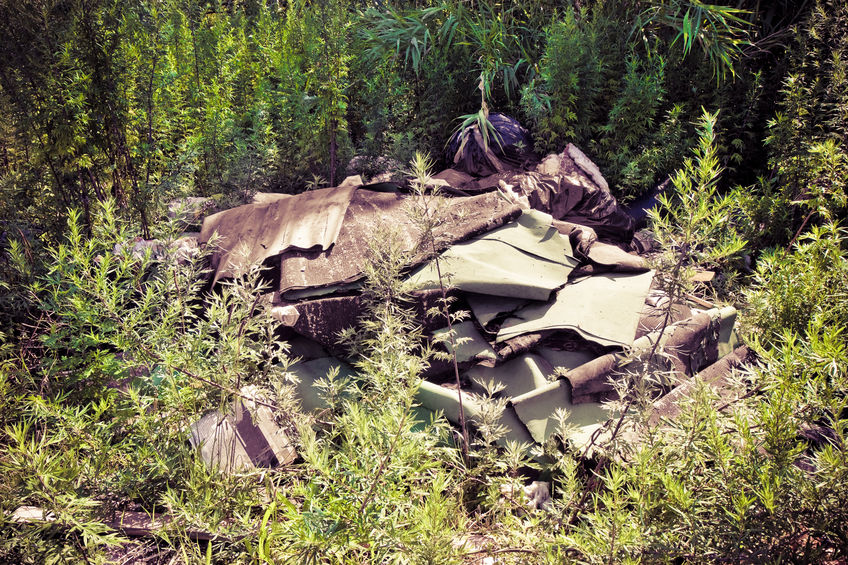
A new police unit may be created to tackle the most serious cases of waste crime affecting farmers and landowners.
Latest fly-tipping statistics show that there were 14,430 incidents involving “significant [or] multi-loads” of waste in England in 2017-18, a rise of 43 per cent from 10,120 the year before.
Now, an independent review to look at the Government’s approach to tackling serious and organised waste crime has recommended a Joint Unit for Waste Crime (JUWC) led by the Environment Agency with Police, Crime Commissioners, HMRC and waste industry representatives, all working together.
The NFU says it supports a "targeted approach" to tackle serious waste crime, providing it involves farmers and landowners.
The union has previously called for a joined-up approach to address the issues of fly-tipping and the large scale coordinated dumping of rubbish.
'Help victims'
NFU Vice President Stuart Roberts said the new waste crime unit may be the answer to help protect the British landscape.
He said: “Private landowners are often required to clear up waste dumped on their land, and more needs to be done to help victims clear up this waste.
”They are the people at the sharp end of the scourge of fly-tipping that has a seriously detrimental effect on lives and farming businesses.
“Dumped rubbish is costly and time consuming to remove, it’s dangerous to human health, harmful to wildlife and livestock and in some cases, fly-tipped waste pollutes watercourses and contaminates land.”
Many farmers experience intimidation, violence and threats when it comes to waste crime, and many do all they can to prevent fly-tippers, such as installing gates, barriers, warning signs, security cameras and lighting.
However, in many cases the NFU have found that deterrents do not work. “These fly-tippers are people intent on breaking the law and they think nothing of cutting padlocks, breaking gates and smashing cameras,” Mr Roberts said.
“Over the past year, the NFU has been engaging with the Government and national police forces and the seriousness of rural crime is now beginning to be recognised.”
Recommendations
The NFU submitted evidence as part of the independent review panel’s inquiry into serious and organised crime in the waste sector in England.
It included types and impacts of serious and organised waste crime affecting farmers, and set out suggested frameworks for tackling the issue. These include:
• A comprehensive and detailed understanding of the extent and impact of serious and organised waste crime.
• Greater clarity in the different roles and responsibilities of the police, local authorities and the Environment Agency in dealing with waste crimes. Greater clarity would help deal with events more effectively.
• The Environment Agency to have the resources to help prevent, act on and pursue criminal activity.
The recommendations of the independent review will inform a Government approach to waste crime, which will be published in the forthcoming Resources and Waste Strategy later this year.
